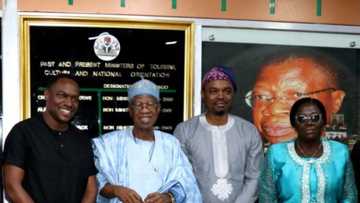List of computer professional bodies in Nigeria and their functions
Are you a computer professional in Nigeria interested in becoming a member of a professional body? There are many professional bodies in Nigeria for computer professionals. Here is a list of computer professional bodies in Nigeria you can join and their functions.
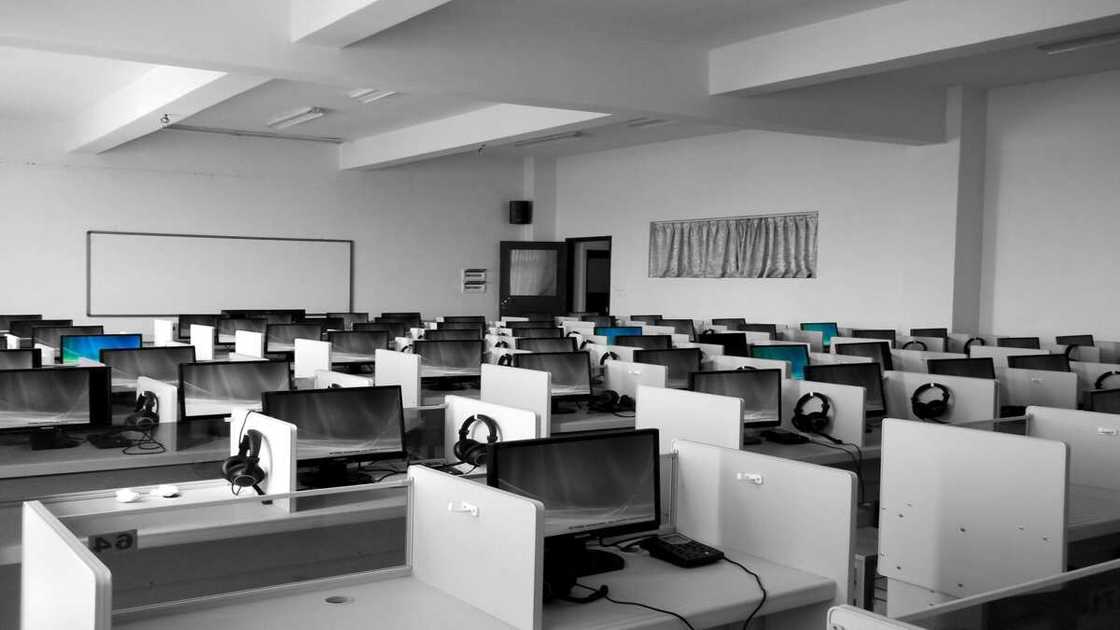
Source: UGC
Below are some of Nigeria's popular computer professional bodies and their functions. You can go through each of them and decide which one you would like to join or know more about.
List of computer professional bodies in Nigeria
What are the computer professional bodies in Nigeria? These are the popular computer professional bodies in Nigeria and their functions.
1. The Nigerian Computer Society (NCS)
The Nigerian Computer Society (NCS) is a professional body that encompasses professionals in the information technology industry, interest groups and other computing and information technology stakeholders.
PAY ATTENTION: Follow us on Instagram - get the most important news directly in your favourite app!
It was established in 1978 and then known as the Computer Association of Nigeria (COAN). The name was changed to Nigerian Computer Society in 2002 when the association was harmonised with other interest groups and stakeholders. It is a national platform that helps advance the science and practice of information technology in Nigeria.
Functions of the Nigerian Computer Society (NCS)
Below are the functions performed by NCS.
- Encouraging the education of computer scientists, engineers, and information technology professionals in Nigeria.
- Supporting and fostering research projects that will advance information technology and its application.
- Helping to disseminate the results of various scientific works in education, industry, and military sectors.
- Encouraging communication among themselves and the public on the art and science of information processing and management.
- Encouraging and supporting honesty among its members who are active in computing and the development of expertise.
- Make sure that the computing profession's ethics are upheld as stated in the society's code of practice and code of conduct.
- Defending and advancing registered members' interests.
- Providing guidance on national and international issues that influence the computing industry to its members, the government, the general public, and other relevant authorities.
- Establishing and advancing international alliances.
- Working together with identical bodies worldwide and rendering, receiving or reciprocating such collaborations that are beneficial and in line with the society's objectives.
- Representing its members as the exclusive authority in all discussions and negotiations with the three branches of government (Federal, State, and Local).
- Making a contribution to the creation of professional-related educational and training programmes, assessments, and policies.
- Recognising and expanding gender equality and safeguarding the interests of people with disabilities and other disadvantaged groups in the computing and information sector, as outlined in the federal republic of Nigeria's constitution.
- Make sure that the government is aware of the ideas and complexity of the problems covered by the "Digital Divide."
- Collaborating with the government, appropriate institutions, and organisations to provide answers to the "Digital Divide" problems.
- Putting together and distributing National Merit Awards to deserving registered members and other information technology advocates.
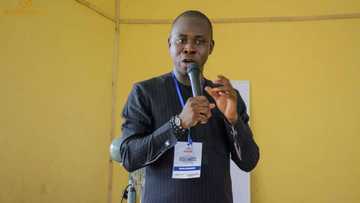
Read also
Hackathon: Leveraging civic tech solutions to address Nigeria’s electoral challenges, by Abideen Olasupo
2. Computer Professionals Registration Council of Nigeria (CPN)
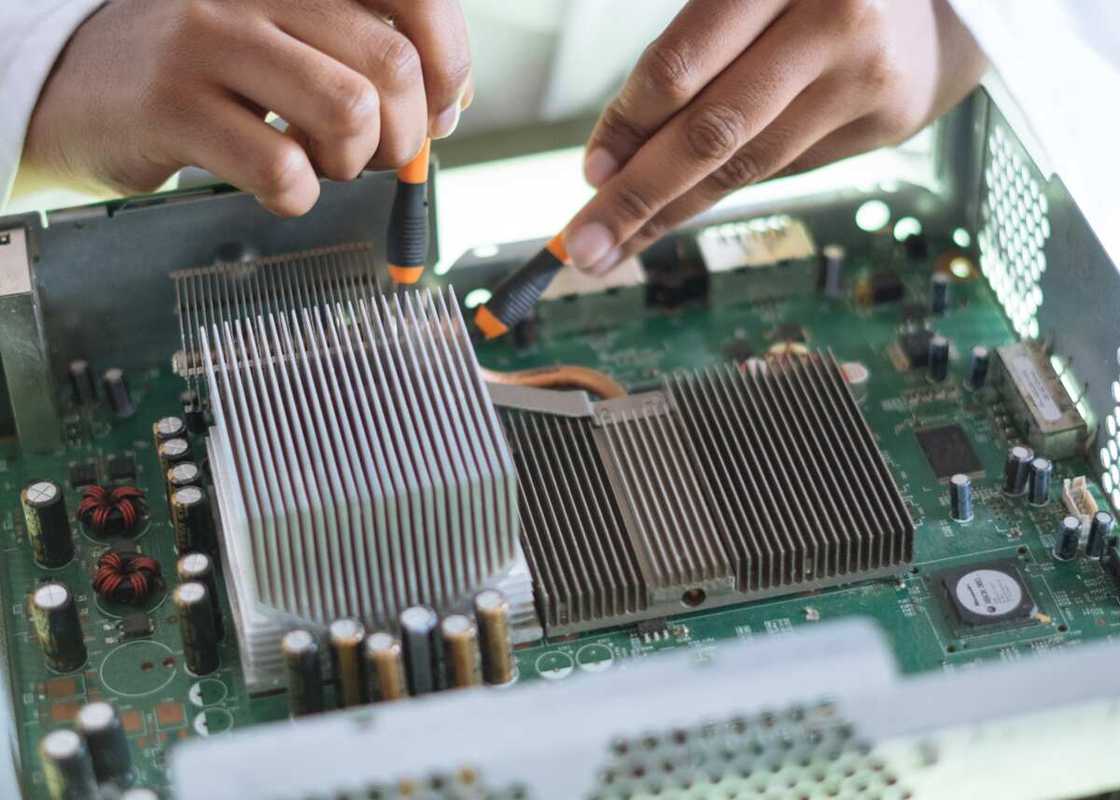
Source: UGC
The Computer Professionals Registration Council of Nigeria (CPN) was formed in 1993 by decree No. 49 of 1993. The decree was promulgated on the 10th of June and published on the 9th of August the same year. This corporate body is vested with the power to control and supervise the computing profession in Nigeria.
Functions of the Computer Professionals Registration Council of Nigeria (CPN)
Below are functions performed by CPN.
- Establishing the minimum knowledge and skill requirements for anybody wishing to work in the field of computing.
- Create and maintain a record of individuals who have registered to practise computers in Nigeria in accordance with the decree, and periodically publish a list of those individuals.
- Organising and controlling the practice of computing in the country.
- Managing the Nigerian computing industry.
- Screening and registration of all corporate organisations in Nigeria that are or want to be involved in the sale or use of computing facilities or the provision of computing services.
- Maintaining high levels of professionalism, ethics, and discipline.
- Developing academic standards for computing programs/degrees such as computer engineering, computer science, and information science.
- Accreditation of educational institutions that grant degrees, appraisal of their programmes, and certifications in computers.
- Carrying on exams in collaboration with organisations and outside organisations for the council.
- Publication of the council's operations.
- Making professional computer works, such as books, journals, magazines, bulletins, etc., available for publication.
3. Nigeria Association of Computing Students (NACOS)
The Nigeria Association of Computing Students (NACOS) was formed in July 1993 by a group of students, with the Nigerian Computer Society (NCS) serving as its parent organisation.
It gives students in all IT-related fields the chance to coordinate and organise their efforts to spotlight and advance important topics.
Students majoring in computer-related fields such as computer science, computer engineering, information technology, etc., make up NACOS members.
Functions of the Nigeria Association of Computing Students (NACOS)

Source: UGC
Below are functions performed by NACOS.
- It gives students opportunities to coordinate and organise their efforts to identify and support important concerns in any field related to information technology.
- NACOS offers an excellent foundation for computer scientists, engineers, and other IT-related professions in Nigeria.
- It gives students the chance to discover and realise their potential and raises their level of competitiveness both locally and internationally in the IT industry.
- It focuses on empowering youth to use IT to contribute to and affect change in Nigeria.
- NACOS uses seminars, lectures, symposia, workshops, and other related events to reposition Nigerian young and project the IT profession.
- NACOS plans capacity-building activities to teach Nigerian youth how to start their businesses utilising IT skills they have already gained.
- It aids in creating venues where novices and experts connected to the fascinating field of information technology can display their goods, services, and software to enterprises, the general public, and industry.
- It promotes using technology, software, and services produced in Nigeria while constructively interacting with attendees and exhibitors.
What is a computer professional body?
They are a collection of experts banded together to establish legal authority over their field of study, both commercially and academically.
What is an example of a computer profession?
Some of the common computer professions include web developers, database administrators, computer software engineers, and information systems security managers.
What are the types of computer professional bodies?
How many computer professional bodies are in Nigeria? The major three computer professionals in Nigeria are:
- Nigerian Computer Society (NCS)
- Computer Professionals Registration Council of Nigeria (CPN)
- Nigeria Association of Computing Students (NACOS)
What are the 5 computer professionals?
Below is a list of 5 computer professionals.
- End Users
- Developers
- Computer Engineers
- Software Designers
- Server Administrators
The list of computer professional bodies in Nigeria above will help you learn more about these bodies and their functions. Visit their websites to learn more about them and how you can be a member.
READ ALSO: 10 qualities of a good computer professional: Key skills and characteristics
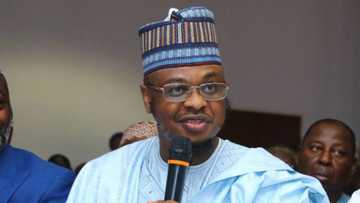
Read also
Pantami’s grand exposés on cybersecurity and the datafication of society, by Yushau A. Shuaib
Legit.ng recently published an article on the top 10 qualities of a good computer professional. A computer professional is a person working in the field of information technology who has undergone training in a computer-field-related college, university and computer institute.
As a computer professional, you must communicate effectively with other professionals within the system. You must also have a good knowledge of the system components.
Source: Legit.ng


